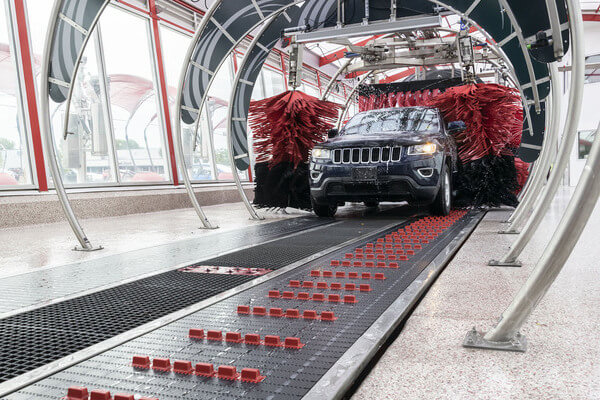Top Questions from Prospective Car Wash Owners: Operation
Talking through all the preliminary questions of building a car wash with prospective owners is important. Choosing a location, constructing the wash, and securing the best equipment are all critical to ensuring a strong foundation for car wash success. But inevitably we arrive at this point in the conversation: What can owners expect once the wash is built? Today, we’re tackling the topic of operation. Here’s what you need to know about running a car wash after the building phase is checked off.
On-Site Employees
Depending on the type of wash you operate, the number of employees you’ll need on the site can fluctuate. Here’s what we’ve found to be true in different scenarios: In-bay automatic locations typically require only a single part-time employee. Busier in-bay locations could require a full-time alternating shift between two employees.
Tunnel or conveyor-style car washes require full-time employment continuously while the site is open. For express exterior-only tunnels, two to three people per shift is typical with peak periods requiring more employees. Site managers and assistant managers are usually required as well. For tunnel sites that offer additional services such as quick detail or full service options, two to three times that number of employees could be necessary.
Return on Investment
This is hands-down one of the biggest questions on the minds of prospective car wash owners, and rightly so. Once the investment has been made, what’s the expected rate of return?
Of course, this number varies and depends on where your car wash is located and what type of wash it is. That said, a typical return on investment is 13-18%, with larger projects potentially reaching 20% or more. This is why the planning and proforma stage of the process is so important. Return on investment will vary greatly based on population, traffic, competition, and type of car wash.
For example, an in-bay automatic in a town with a population below 10,000 people with two competing washes could return 15%. A larger tunnel (conveyor) style wash with limited competition with heavy traffic could exceed 20%. Think about the type of wash you’re planning to operate and your own unique set of circumstances and environment, and you can project—to a degree—what your return on investment may be.
We’re here to answer your questions about site planning, construction, equipment, operation, and much more. Give us a shout to start the conversation about building your own car wash. That’s what we’re here for!

